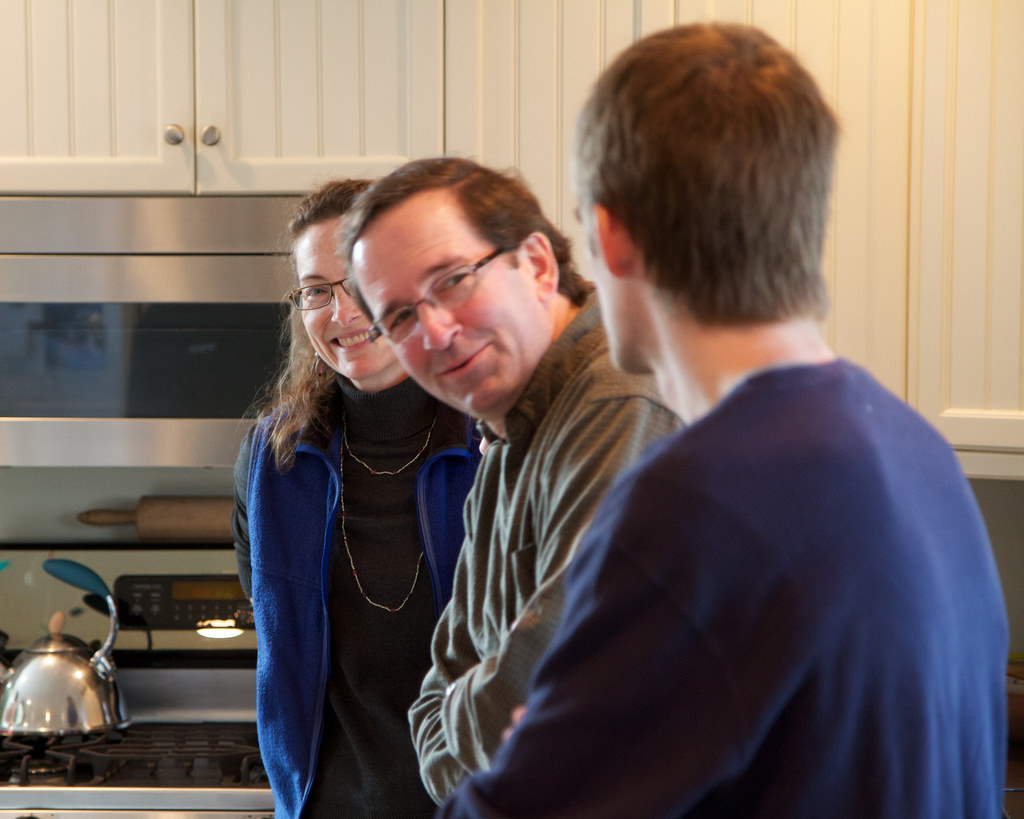Let’s Be Reasonable

My son proclaimed at the dinner table one night, “The Bible is homophobic!” He was hoping to get a rise out of me. It almost worked. But I controlled my emotions and began engaging my son in a discussion instead. Not only did we have a great dinner conversation, but hopefully my children learned a thing or two about how to think well and how to seek and value real truth.
Kids are going to come home with opinions that they are convinced are right because one group or another has told them it is right. Unfortunately, we live in a culture that values inflammatory statements more than it values the truth. Instead of seeking truth together through respectful debate, logic, and science, we are shuttled into camps of like-minded people where thought leaders and majority opinion dictate what we are supposed to believe. We are encouraged to build mental bunkers that don’t allow any contradictory thoughts and are lured into name-calling, labeling, and agitation. This kind of culture is very confusing for our children.
Honestly, adults are tempted to seek truth from like-minded people who agree with us as well. We often let majority opinion and emotions dictate what ideas are worthy of praise and which ideas are worthy of ridicule. We are happy to follow whichever crowd confirms our beliefs without requiring us to examine them. Sadly, groupthink does not reveal the real truth.
Here is the challenge. How can you and your children uncover the truth and value it?
We explored part of the solution last month with the virtue of solertia, or intellectual shrewdness. Solertia helps us put on the emotional breaks and analyze whatever is being claimed to be true. It keeps us from being swept away in the moment.
The next part of the solution is to use the virtue of reasoning. Reasoning is the habit of logical thinking. It is a process to analyze an issue from premise to conclusion, to investigate and compare possibilities, and to avoid logical fallacies in the search for truth. In other words, the virtue of reasoning applies clear thinking in the pursuit of truth.
Like science, the virtue of reasoning is based on some basic assumptions. The first assumption is that truth exists independently of us. Our beliefs don’t create truth. Every person does not have his or her own truth. Rather, our task is to discover the truth and to shape our lives around it.
That means that our opinions are not untouchable ideas that need to be defended at all costs. It also means that we can’t avoid conflict simply by tolerating the thoughts and ideas of others. Instead, we should see all opinions as theories that need to be tested. That means that we need the humility to admit that our opinions may be wrong. But we happily present our opinions to be tested because our goal is to find and embrace the truth, not just to win an argument. Likewise, we use the virtue of reasoning to test the opinions of others in the same search for objective truth.
So how do you respond when your children come home with the latest group opinions? How do you use reasoning to bring them clarity? It starts with being a good listener. Let your children know that you welcome their opinions by looking them in the eye, letting them tell you their thoughts, and engaging with them. Don’t shut them down, no matter how ludicrous their thoughts seem to you.
You should ask good questions. Ask your children to define their terms. Inflammatory statements are often based on rhetoric and assumptions about what words mean. Help them test their logic by asking them if their conclusion fits their claims. For example, “Does it necessarily mean that ‘y’ is true just because ‘x’ is true?” or you might ask, “What are the possible causes of this effect? What are some other possibilities?”
Remember that the point of asking questions is not to win an argument but to help your children to seek the truth through clear thinking. Approach every issue calmly. Instead of setting yourself up as the opposition, present yourself as a partner with your child. Seek the truth together.
All of us need to remember that the truth exists independently of our opinions. That is why people discuss situations logically and calmly. There is a purpose to arguing and debating one’s position or beliefs with others because that is how real truth is discovered and clarified. When truth becomes clear through a discussion, take a moment to praise God for revealing it to you. Because, as we all know, God is the source of all that is true.
Good and gracious Lord,
Help me develop the virtue of reasoning. Give me the strength to think logically, especially when emotions run hot. Grant me humility so that I will be more interested in seeking the truth than in winning the argument. I ask this in the Name of Jesus. Amen.
